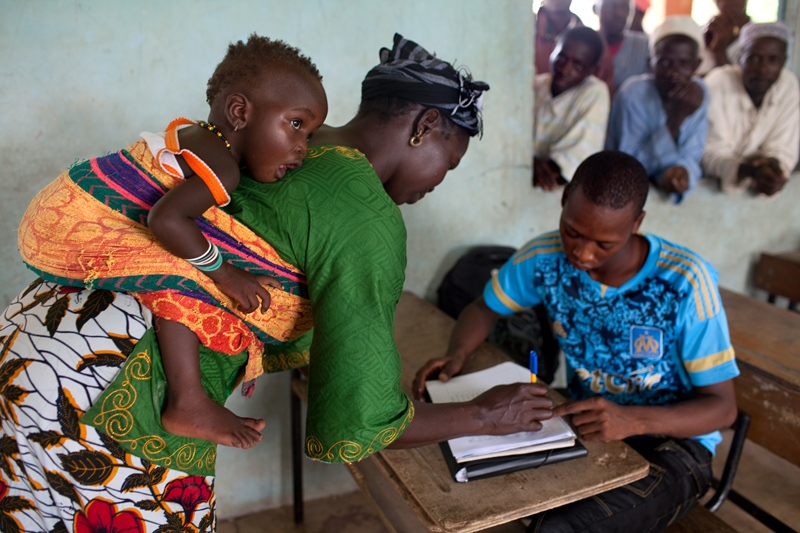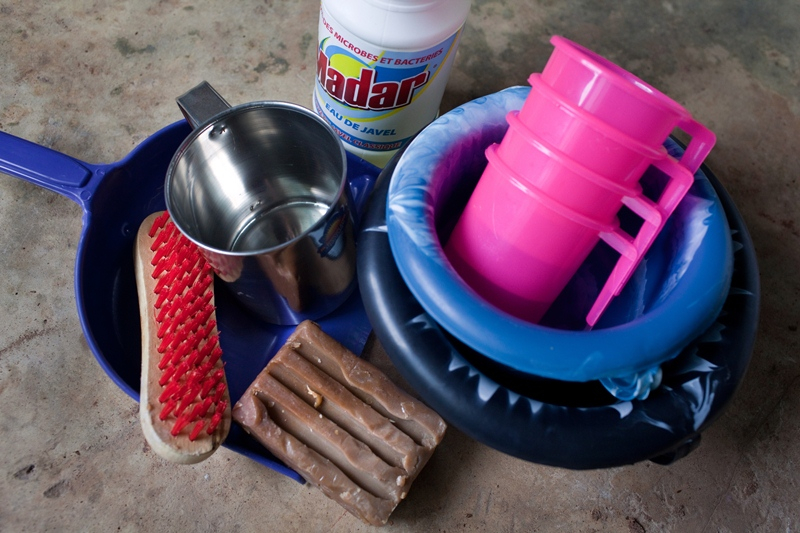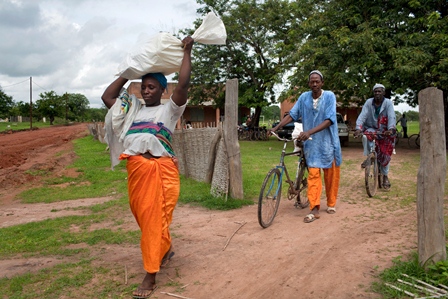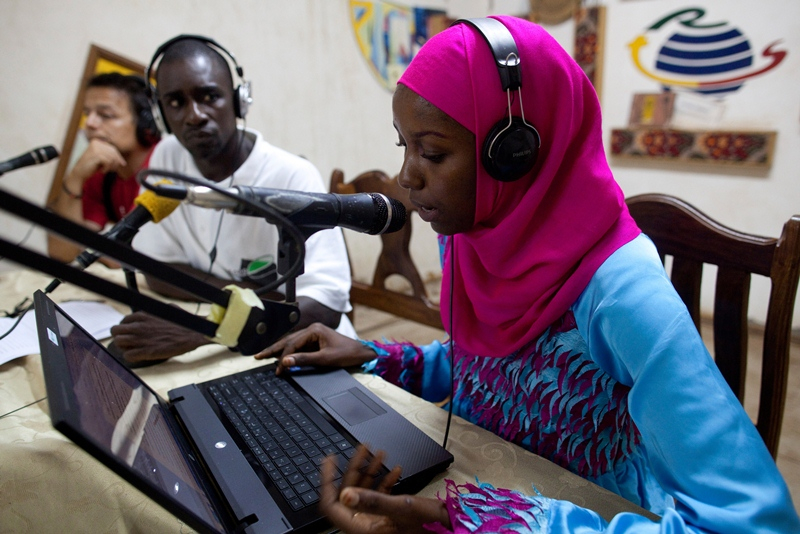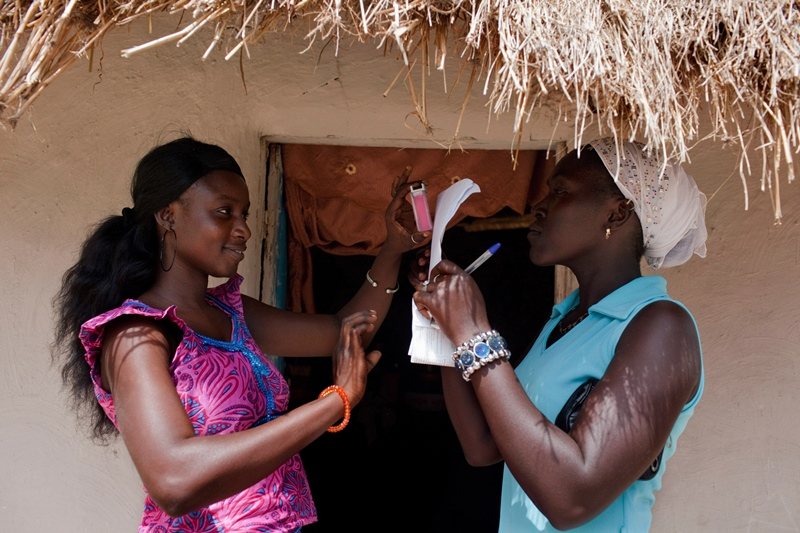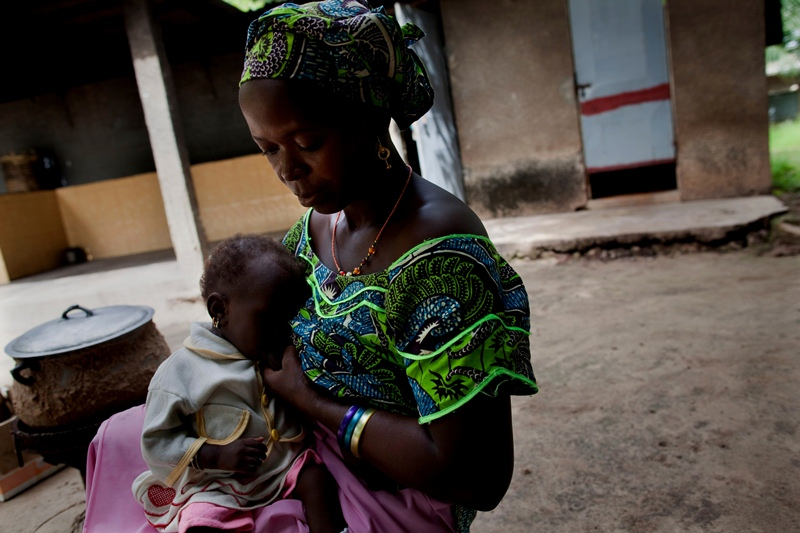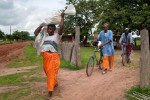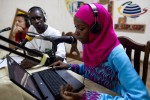Sahel food crisis: Combating hunger with hygiene
Stevens recently returned from the Kolda region of Senegal which – like much of the western Sahel region of Africa – is experiencing a severe food crisis. This is the third of four blogs from the trip.
Penda Balde and her husband Djibril Sylla are living in the grip of the Sahel food crisis. Their home, which they share with their children and grandchildren, is in Fafacourou, one of countless villages in Senegal where farmers lost their last harvest to the erratic rains of 2011. Their stocks of food ran out many months ago.

Which is why they welcomed a recent distribution of soap, bleach, and scrub brushes.
If you live in a place where clean drinking water and soap are everywhere, and where a case of waterborne disease is merely an inconvenience—easily treated and cured—it may be hard to wrap your mind around why people experiencing hunger and malnutrition would see hygiene activities as a matter of urgency. But for Balde, it is obvious. “If you don’t respect hygiene, you can get diarrhea. If you have diarrhea, you become weak.”
And Balde and Sylla can’t afford to be weak.
The harder this food crisis has hit you, the more arduous the work you may have to perform in order to provide for your family. With no stores of food to live on, Sylla must cut and haul firewood from the bush to sell in the market. “It is very difficult for an older man,” he said. Balde must labor in the fields of wealthy landowners for the tiny wages they offer. “The work requires much strength,” she said, “and we are not allowed to rest.”
What I learned from Balde, Sylla, and many of their neighbors in Fafacourou is that at times like these, it is an achievement to find enough nutrients and calories to get through the day. And no one knows better than they that disease can unravel that achievement with breathtaking speed. So, they welcome the visits of community outreach workers from our partner FODDE (in English, Forum for Sustainable Indigenous Development), who make sure everyone has mastered the knowledge and practices they need to prevent debilitating and dangerous bouts of diarrhea. And they appreciate free hygiene kits, because, as Sylla pointed out, “if you don’t have any money, you can’t buy hygiene materials. Your priority is food.”
Oummou Doucoure is in charge of FODDE’s work around water, sanitation, and hygiene, and I met her on the day when Fafacourou residents received their kits—one day before the same group would receive a cash payment to enable food purchases. Ending malnutrition isn’t only about providing access to food, she explained. It also has to do with water and hygiene. “In a food crisis,” she said, “clean water, soap, and chlorine are almost as important as rice and millet.”
Read blogs about the situation in Senegal, how we are helping people get access to food, and more.
Read more about what Oxfam is doing in the food crisis across the western Sahel.
An urgent request: Oxfam’s programs for this emergency are severely underfunded. Please help us with a donation if you can.
